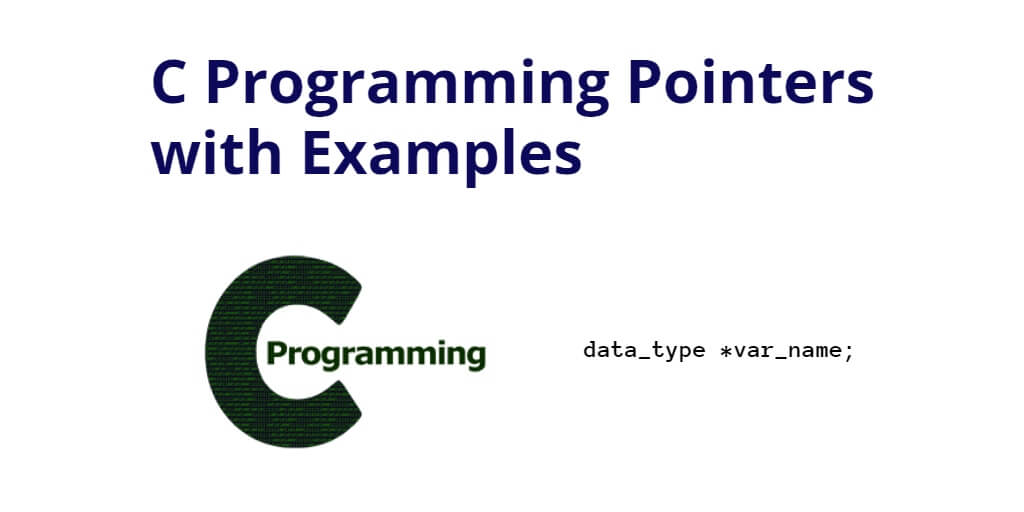Pointers in c programming; Through this tutorial, you will learn everything about pointers in c programming with the help of it’s syntax, declaration, types of pointers, advantages, disadvantages and examples.
Pointers in C Programming
- What is Pointers
- Syntax of Pointers
- Declaring a pointers
- Types of Pointers
- Advantage Of Pointers
- DisAdvantage Of Pointers
- Example of Pointers in C
What is Pointers
In c programming, A pointers are special variables that stores the addresses of another variables. While other variables store the value of a variable of a specified type (int, char, float, etc.), the same pointer stores the address of a variable. And every pointer variable has a unique address in memory. And these addresses are in hexadecimal form.
For example, an float variable stores an float value, however an float pointer holds the address of a float variable.
Syntax of Pointers
The syntax of pointer in c; as shown below:
data_type *var_name;
Declaring a pointers
You can declare pointers in c using the following way:
int* p;
Where, * is used to denote that “p” is pointer variable and not a normal variable.
And, also, you can declare pointers in the following ways:
int *p1; int * p2;
Note that:- The * Operator is also known as Value at address operator.
Types of Pointers
There are eight different types of pointers they are:
- Null pointer
- Void pointer
- Wild pointer
- Dangling pointer
- Complex pointer
- Near pointer
- Far pointer
- Huge pointer
Advantages of Pointers
- Less time in program execution
- Working on the original variable
- With the help of pointers, we can create data structures (linked-list, stack, queue).
- Returning more than one values from functions
- Searching and sorting large data very easily
- Dynamically memory allocation
Disadvantages of Pointers
- Sometimes by creating pointers, such errors come in the program, which is very difficult to diagnose.
- Sometimes pointer leaks in memory are also created.
- If extra memory is not found then a program crash can also occur.
Example of Pointers in C
#include <stdio.h>
int main()
{
int num = 10;
printf("Value of variable num is: %d", num);
/* To print the address of a variable we use %p
* format specifier and ampersand (&) sign just
* before the variable name like &num.
*/
printf("\nAddress of variable num is: %p", &num);
return 0;
}
Output of the above c pointer program is:
Value of variable num is: 10 Address of variable num is: 0x7fff5694dc58
